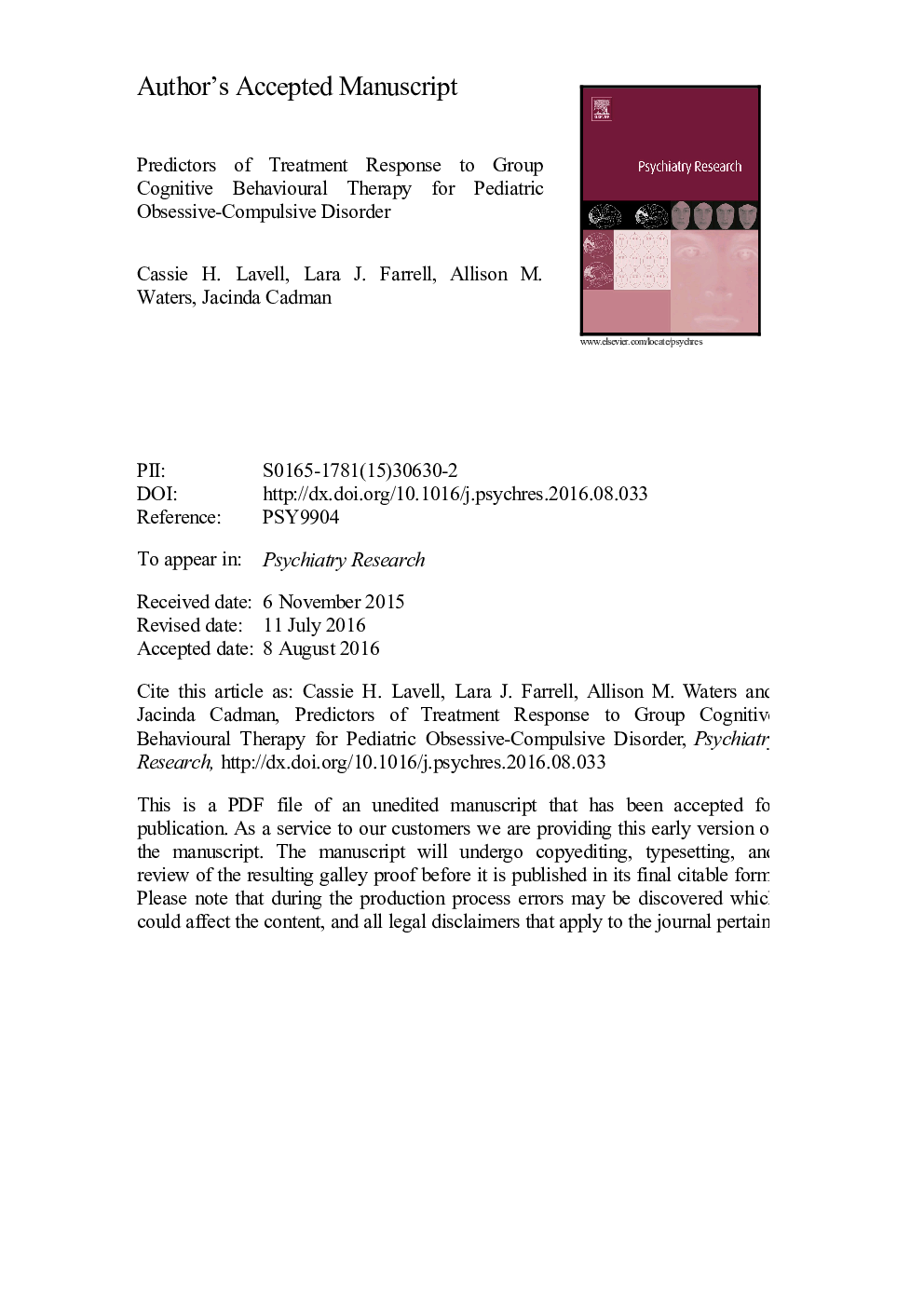| Article ID | Journal | Published Year | Pages | File Type |
|---|---|---|---|---|
| 6812361 | Psychiatry Research | 2016 | 33 Pages |
Abstract
Obsessive-compulsive disorder (OCD) is a debilitating mental health disorder, occurring in 1-2% of children and adolescents. Current evidence-based treatments produce promising rates of remission; however, many children and youth do not fully remit from symptoms. The current study explored predictors of treatment response to a group cognitive-behavioural treatment program for pediatric OCD (N=43). Higher levels of child depression and parental rejection at baseline were found to be associated with higher OCD symptoms at post-treatment. Family accommodation was found to be associated with OCD symptom severity at 12-months follow-up. Further, children who were classified as treatment responders at 12-months follow-up had fewer depressive symptoms at baseline than non-responders at 12-months. Results indicate that child depression and adverse family factors may contribute to poorer treatment response for children and youth with OCD. This finding suggests current treatments should be refined for these young people in order to better suit their individual needs.
Keywords
Related Topics
Life Sciences
Neuroscience
Biological Psychiatry
Authors
Cassie H. Lavell, Lara J. Farrell, Allison M. Waters, Jacinda Cadman,
